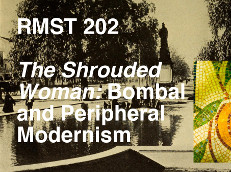‘Amulet’ by Robert Bolaño gave me an insight on how much my reading patterns have changed since I was in high school. I had to read a boom much akin to ‘Amulet’ in my second to last year of high school; I’m sure many of you know it. ‘Chronicle of a Death Foretold’, by Gabriel García Márquez is one of the most famous books in the genre of magical realism. Back when I first read it, I was interested, but I found it incredibly hard to read, as I think many people who had never read magical realism would. While I understood I also did not understand. It was never quite clear what happened and what didn’t, whether there was a meaning or there wasn’t. This same feeling was brough into my reading of ‘Amulet’ as well, however, this time I enjoyed the confusion. Instead of searching for answers to everything, I just read the text as it was, which allowed me to absorb the story much better with less confusion.
As I read, I understood that anything was possible, that the events happening were often just extended metaphors for Auxilio’s emotions and what was occurring around here. Although, in a sense that I remembered I should question everything occurring in the story. All of the stories Auxilio told of her future, I realised half way through, may not have even happened in the end. Maybe she was purely imagining her future as she was slowly affected by her lack of food and life in the university bathroom. Really, we can never find out her true life. Even her past, in which she talks about living with famous poets and gallivanting around Mexico, could have been falsehoods she came up with during her days of isolation. At the end of the story, I found myself wondering what being the “mother of Mexican poets” actually meant. Was this truly Auxilio’s life and status, or was she simply imagining herself in a life she would rather be in? Even in the end of the novella, when she is rescued and the story of her survival is shared, she is ascribed many other realities by the people telling her story.
While I know we don’t often discuss the author’s role, something I couldn’t stop thinking about was the reason behind Bolaño writing this story the way he did. While questioning Auxilio, I found I was also questioning Bolaño. I understand his message (I think), but his use of showing Auxilio’s future (which has not happened yet), his use of a female narrator (who was based off of a real person, but it still seemed odd to me), and his strange fixation with Auxilio being a mother without actual children, were hard for me to fully comprehend. I can appreciate his choices, but at the same time, I still cannot understand why some of the literary choices he made were important. I wonder whether everything has a very specific meaning, or whether some of his choices were made on a whim with no connection or attempt for them to make sense – lending to the magical realism genre.
My question for this week builds off of this; why do you think Bolaño felt the need to tell this story from the perspective of Auxilio as opposed to a character more similar to himself? I am aware the basis of the story comes from a real situation, but I wonder what compelled him to tell this story the way he did.

